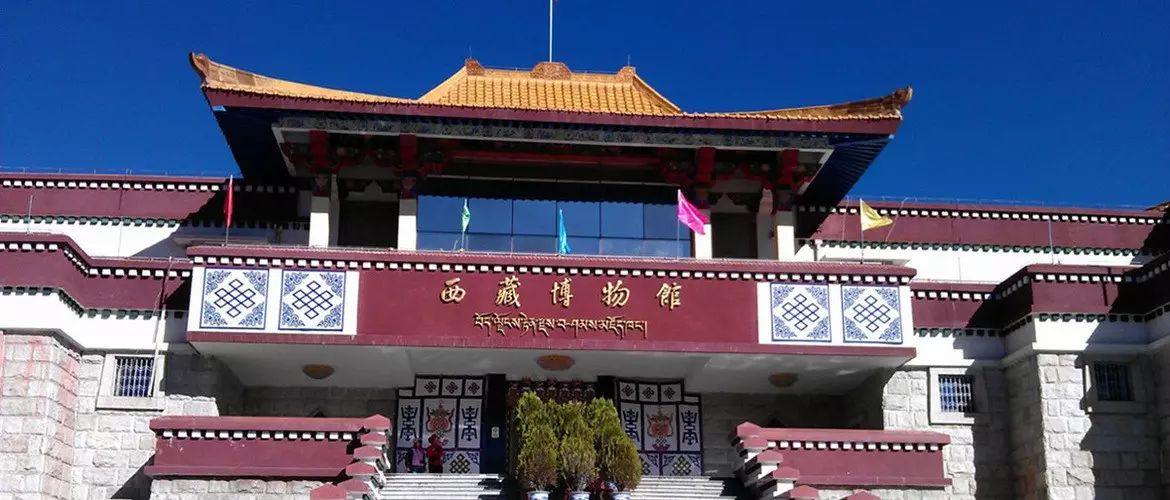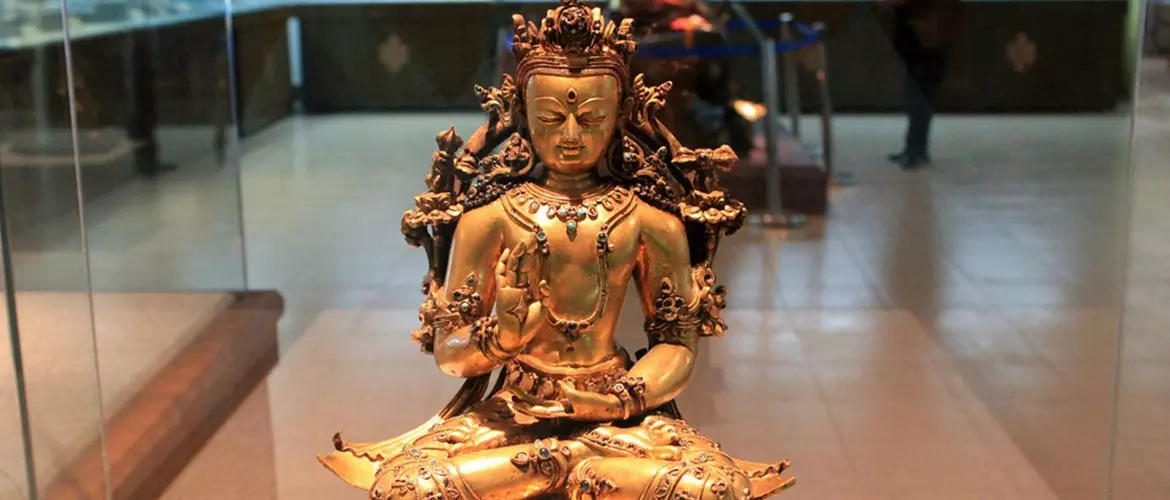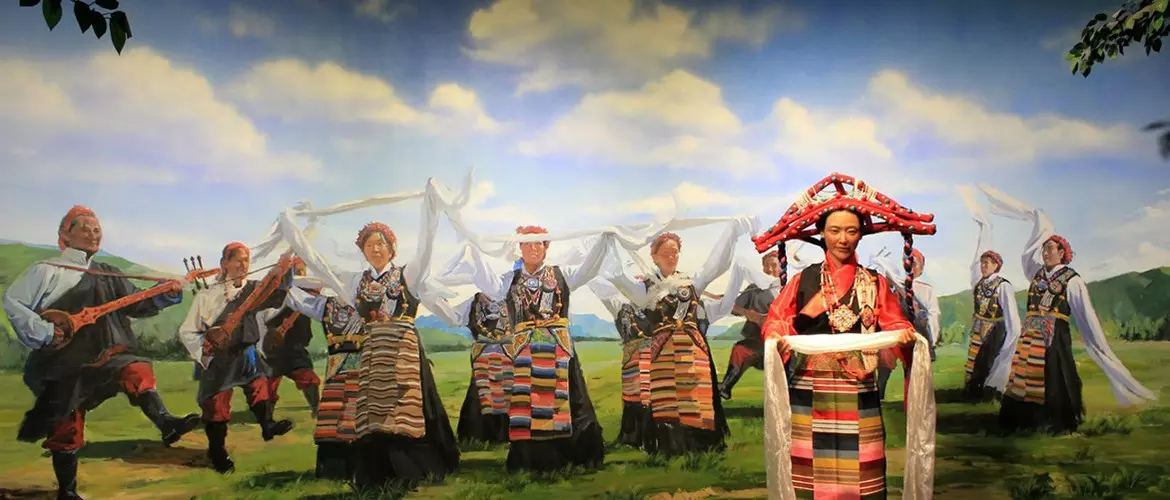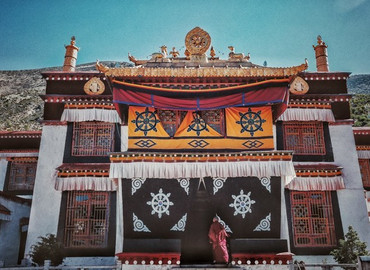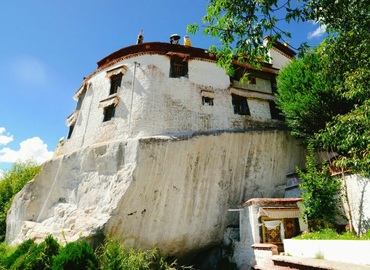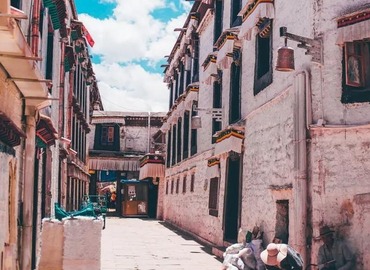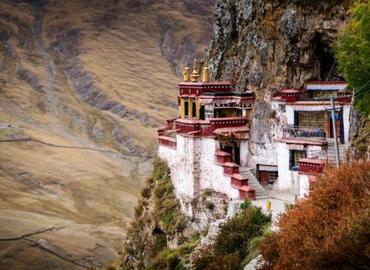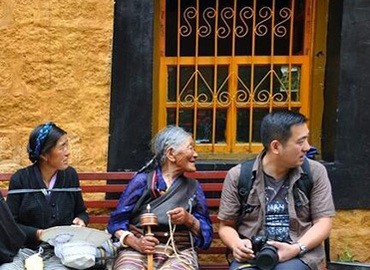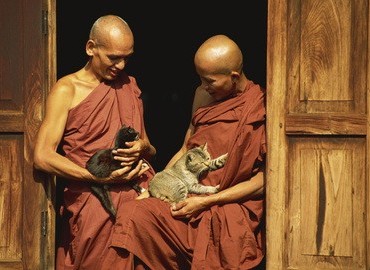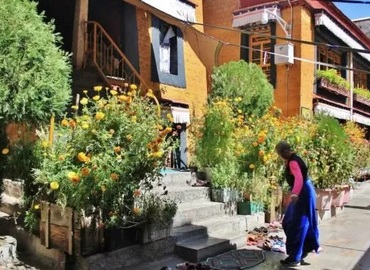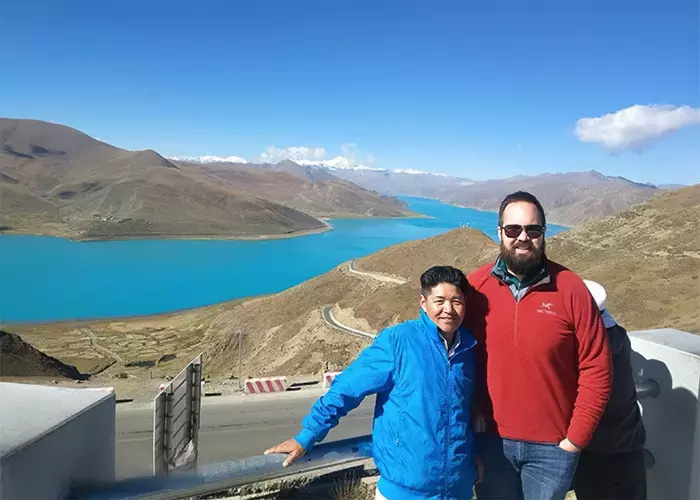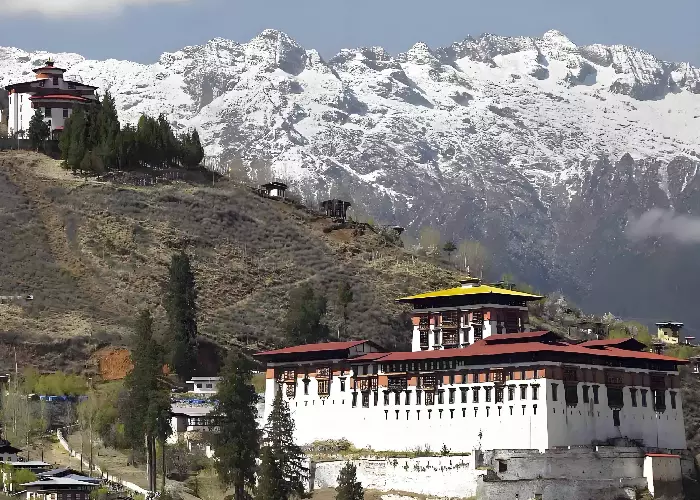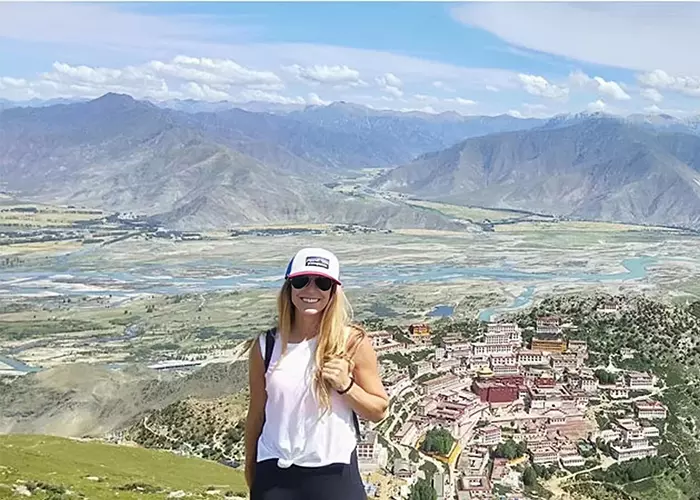Tibet Museum is just opposite the southeast corner of Norbulingka. It's worth a visit if you are interested in Tibetan culture and history as well as art.
Tibet Museum covers an area of 23,508 square meters including an exhibition area of 10,451 square meters. Tibet Museum is equipped with modern facilities to ensure quality service for visitors and the safety and efficient administration of the museum itself. Here exhibits are introduced in English, Japanese, Tibetan, and Chinese, in order to accommodate visitors from all over the world.
The construction project of the Tibet Museum was listed as one of the sixty-two "Aid-Tibet Projects" in July 1994. It was opened in October 1999 to coincide with the 50th anniversary of the Founding of the People's Republic of China and the 40th anniversary of Tibet's Democratic Reform. The former Chinese chairman Jiang Zemin inscribed its name.
The building of the Tibet Museum is a pioneering institution in the history of the region. There are many precious cultural relics in the museum, showing the unique and charming splendid culture and long history of the Tibetan nation.
The museum is divided into three floors. The first floor is a tourist souvenir shop, the second floor is a Tibetan history exhibition, and the third floor is special exhibitions and temporary exhibitions such as thangkas, animals and plants, and jade. The museum exhibition hall is composed of four parts: prehistoric culture, indivisible history, culture and art, and folk culture.
Each exhibition hall displays a rich collection of treasures, such as statues of Buddhas and Bodhisattvas of various textures and shapes, handwritten Tibetan classics dipped in gold powder, silver powder, coral powder, etc., gold seals and signatures awarded to the Great Living Buddha by the central government of the past dynasties. Jade sticks are used in ceremonies, colorful thangkas, various musical instruments and ritual utensils, handicrafts with distinctive ethnic characteristics, unique pottery, etc., from Tibetan history, culture, art, religion, folk customs, etc. It intuitively displays to the audience the unique and charming splendid culture and long history of the Tibetan nation.
Lhasa - Yamdrotso - Lhasa
Show you the holy Buddhist city of Lhasa, home of famous monasteries and devout Tibetans, and breathtaking lake scenery.
Lhasa- EBC- Kailash- Gyirong- Kathmandu- Paro- Punakha- Paro
Explore the core of Tibetan Buddhism culture and experience a purification of the spirit.
Lhasa - Ganden Monastery - Lhasa
Designed for tourists with a special interest in Tibetan Buddhism. Hiking around Ganden Monastery is the highlight.
Email response within 0.5~24 hours.


